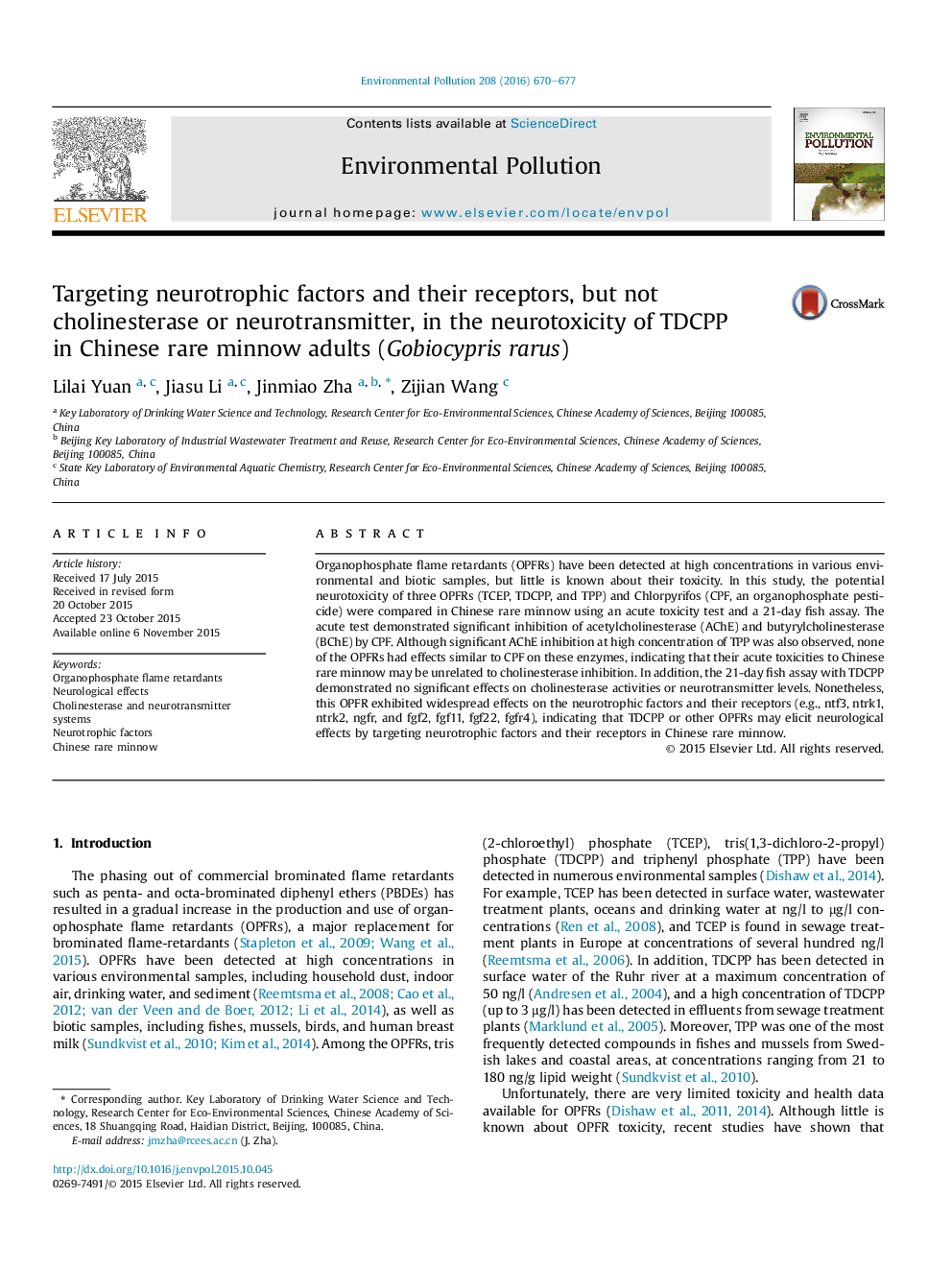| Article ID | Journal | Published Year | Pages | File Type |
|---|---|---|---|---|
| 6316324 | Environmental Pollution | 2016 | 8 Pages |
â¢Significant inhibition of AChE and BChE activities by CPF was observed.â¢None of the OPFRs had similar effects on the cholinesterase like the CPF.â¢TDCPP showed significant effects on the neurotrophic factor genes in rare minnow.
Organophosphate flame retardants (OPFRs) have been detected at high concentrations in various environmental and biotic samples, but little is known about their toxicity. In this study, the potential neurotoxicity of three OPFRs (TCEP, TDCPP, and TPP) and Chlorpyrifos (CPF, an organophosphate pesticide) were compared in Chinese rare minnow using an acute toxicity test and a 21-day fish assay. The acute test demonstrated significant inhibition of acetylcholinesterase (AChE) and butyrylcholinesterase (BChE) by CPF. Although significant AChE inhibition at high concentration of TPP was also observed, none of the OPFRs had effects similar to CPF on these enzymes, indicating that their acute toxicities to Chinese rare minnow may be unrelated to cholinesterase inhibition. In addition, the 21-day fish assay with TDCPP demonstrated no significant effects on cholinesterase activities or neurotransmitter levels. Nonetheless, this OPFR exhibited widespread effects on the neurotrophic factors and their receptors (e.g., ntf3, ntrk1, ntrk2, ngfr, and fgf2, fgf11, fgf22, fgfr4), indicating that TDCPP or other OPFRs may elicit neurological effects by targeting neurotrophic factors and their receptors in Chinese rare minnow.
